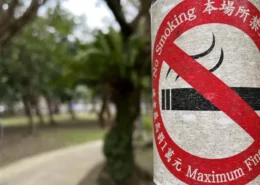Indonesia Urged to Refine Tax & Regulation for Nicotine Products
Experts at ISSA 2025 call for Indonesia to differentiate tax & regulation for vapes/nicotine pouches from traditional cigarettes.
International experts are urging the Indonesian government to refine its regulatory and tax policies for alternative nicotine products like vapes and nicotine pouches, advocating for a risk-proportionate approach that differentiates them from more harmful conventional cigarettes. While praising Indonesia for allowing these products, unlike some neighboring countries, concerns were raised about current tax equivalency with traditional tobacco.
Speaking at the 2025 Asia Southeast Summit (ISSA), Ashok Kaul, Senior Partner at Roland Berger, commended Indonesia for permitting nicotine pouch products, contrasting this with outright bans in places like Singapore. However, he pointed to a “negative side”: taxing these newer nicotine products at the same rate as combustible cigarettes. Kaul suggested this policy needs evaluation to better reflect the potentially reduced-risk profile of such alternatives.
Dr. Tikki Pang, former Director of Research Policy & Cooperation at WHO Geneva, emphasized learning from diverse global regulatory models for Tobacco Harm Reduction (THR) products. He outlined a spectrum of approaches, from no regulation (risking low-quality, unsafe products) to total prohibition (as seen in Singapore, Thailand, and Australia). Dr. Pang warned that total bans often lead to thriving, uncontrollable black markets, citing vape smuggling in Singapore and attacks on pharmacies dispensing prescription vapes in Australia as examples of unintended negative consequences.
He advocated for a “moderate and risk proportionality approach,” praising countries like Indonesia and the Philippines for implementing progressive regulations that control youth access while ensuring product quality and safety for adult users. “The Philippines, for example, has a special law on vapes that regulate the user’s age limit as well as product quality and safety standards,” Dr. Pang noted. He concluded that while Indonesia is making progress, challenges remain, particularly regarding taxation. A more rational and balanced policy is needed to ensure that less harmful alternatives are accessible and affordable for adult smokers seeking to switch, thereby supporting public health goals.
- HHC Vapes: What Are They & Are They Safe? - July 31, 2025
- Cannabis and Vape Shop Workers Rank Happiest in Nation - July 31, 2025
- Richmond, VA, Restricts New Vape & Tobacco Shop Locations - July 31, 2025








